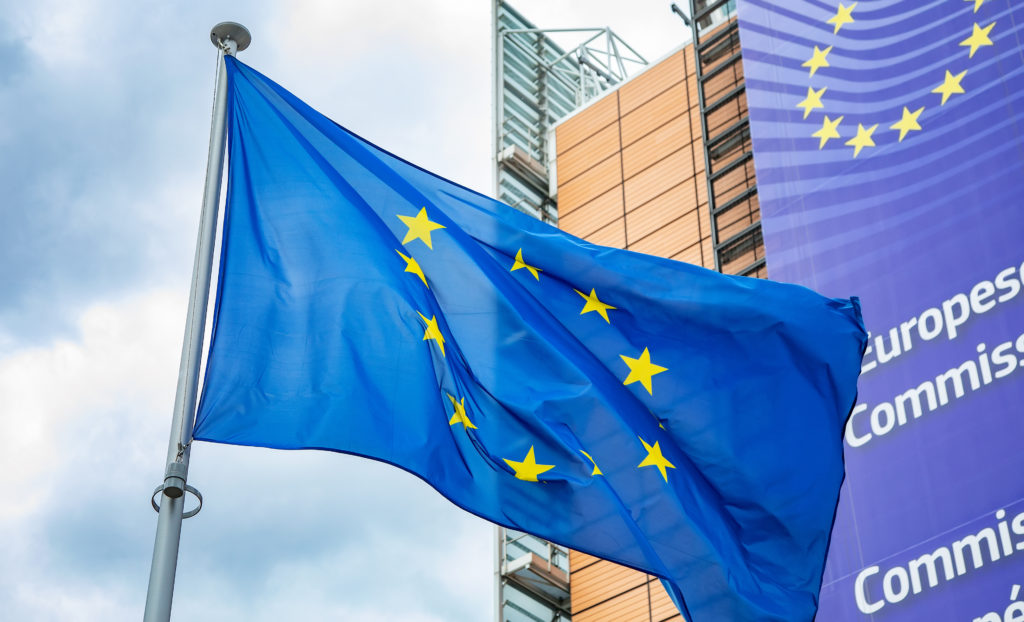As an orchestra unites a multitude of instruments to perform a symphony, the European Union also strives to harmonize the various nations of Europe, fostering a collaborative environment for growth, stability, and prosperity. In the grandeur of this symphony, the United Kingdom once held a place as a leading violinist, creating melodious strains of influence and innovation. However, following the Brexit decision in 2016, the UK chose to play solo, leaving a silence where there was a vibrant harmony once. While the strains of independence have their allure, there are compelling reasons why the UK should consider rejoining this grand symphony of nations at the earliest opportunity.

The first note in this argument lies in the economic realm. The EU represents a colossal market with an open-door policy for member nations. Pre-Brexit, the UK enjoyed tariff-free access to over 500 million consumers. However, the post-Brexit scenario has painted a starkly different picture. British businesses now grapple with added costs, tariffs, and paperwork, impeding trade and adding hurdles to the UK’s economic landscape. Reintegration into the EU would revive that easy access to the Single Market, fostering economic growth and stability.
Secondly, the sound of unity reverberates in shared research and development efforts. EU membership provided the UK with significant scientific research funding, bolstering innovation and technological advancements. The Horizon 2020 programme, for example, had the UK at the heart of collaborative research, reaping the benefits of shared knowledge, resources and fostering an environment for pioneering innovations in science and technology.
The third chord that resonates in this symphony is the one of shared responsibility and global influence. As part of the EU, the UK had a significant voice in climate change and global geopolitics. The EU, as a collective entity, possesses a significant clout on the world stage, a strength derived from unity. By rejoining the EU, the UK can add to this collective strength, shaping global decisions rather than responding to them.

The melody of the free movement of people also rings a nostalgic note. The ability to live, work, and study anywhere in the EU was freedom enjoyed by UK citizens as part of the Union. This freedom nurtured cultural exchanges, educational opportunities, and a sense of European identity. The reintroduction of borders has curtailed these freedoms, inhibiting growth and opportunities for the citizens of the UK. Reuniting with the EU would restore these freedoms, enriching lives through shared cultures and opportunities.
Lastly, the EU offers the harmony of collective security. The collaboration between member nations enhances the capacity to address threats, both traditional and unconventional. Whether it’s a coordinated response to pandemics, joint action against cyber threats, or shared intelligence against terrorism, the UK would stand stronger against such challenges as part of the collective entity of the EU.
As with any decision of such magnitude, the path to rejoining the EU is not without its challenges and potential discord. It would necessitate compromises and adjustments. Yet, it is crucial to remember that an orchestra is not about one instrument playing louder than the others but about each adding their unique sound to create a beautiful, harmonious symphony. By returning to the EU, the UK can reclaim its place in this symphony, contributing its unique strains to the grandeur of a united Europe. There is strength in unity, prosperity in collaboration, and beauty in harmony. The UK and the EU, as history has shown, can create beautiful music together. The stage is set, the baton is raised, and the time has come for the UK to consider rejoining this symphony of nations.

As we venture into the fourth movement of this argument, let’s revisit the enduring power of shared values and societal impact. The EU represents a collective commitment to democracy, human rights, and the rule of law. It stands as a symbol of peace, having transformed a continent once torn by conflict into a model of successful conflict resolution. The UK, with its shared values and history, naturally aligns with this collective aspiration. Rejoining the EU would reinforce these shared commitments, providing a unified front in the face of global challenges that threaten these fundamental principles.
Furthermore, rejoining the EU could also enable the UK to have a stronger hand in shaping the future of the Union. The EU is a dynamic entity that continually evolves to respond to the changing needs of its members. Having the UK back in the fold, with its diverse perspectives and robust democratic traditions, would enrich these discussions and help shape a more inclusive and balanced EU.
The fifth and final note is a reprise of the very essence of the EU – unity in diversity. Each member state, with its unique culture, history, and strengths, contributes to the beautiful tapestry that is Europe. The UK’s withdrawal has left a void in this rich mosaic. By returning, the UK can once again add its unique hue to this vibrant composition, enriching it through its contributions in the spheres of art, literature, science, business, and more.

While the path to reentry may be complex, the potential rewards resonate powerfully. Each of the points highlighted here represents a note in the compelling melody urging the UK to consider a swift return to the EU. However, it’s essential to remember that the decision to rejoin this symphony of unity should be guided by the collective voice of the people, reflecting their aspirations and their vision for the future.
As individual entities, the European Union and the United Kingdom hold their merits. Yet, history and reality have proven the extraordinary power that can emerge when these entities play together in harmony. The time has come for the UK to revisit its position and consider taking up its instrument once again. It’s time for the music to play and for unity, growth, and prosperity to echo throughout the halls of Europe. The orchestra awaits the return of the UK, not just to fill the silence but to contribute to a richer, more harmonious melody. It’s time to join the symphony anew.





